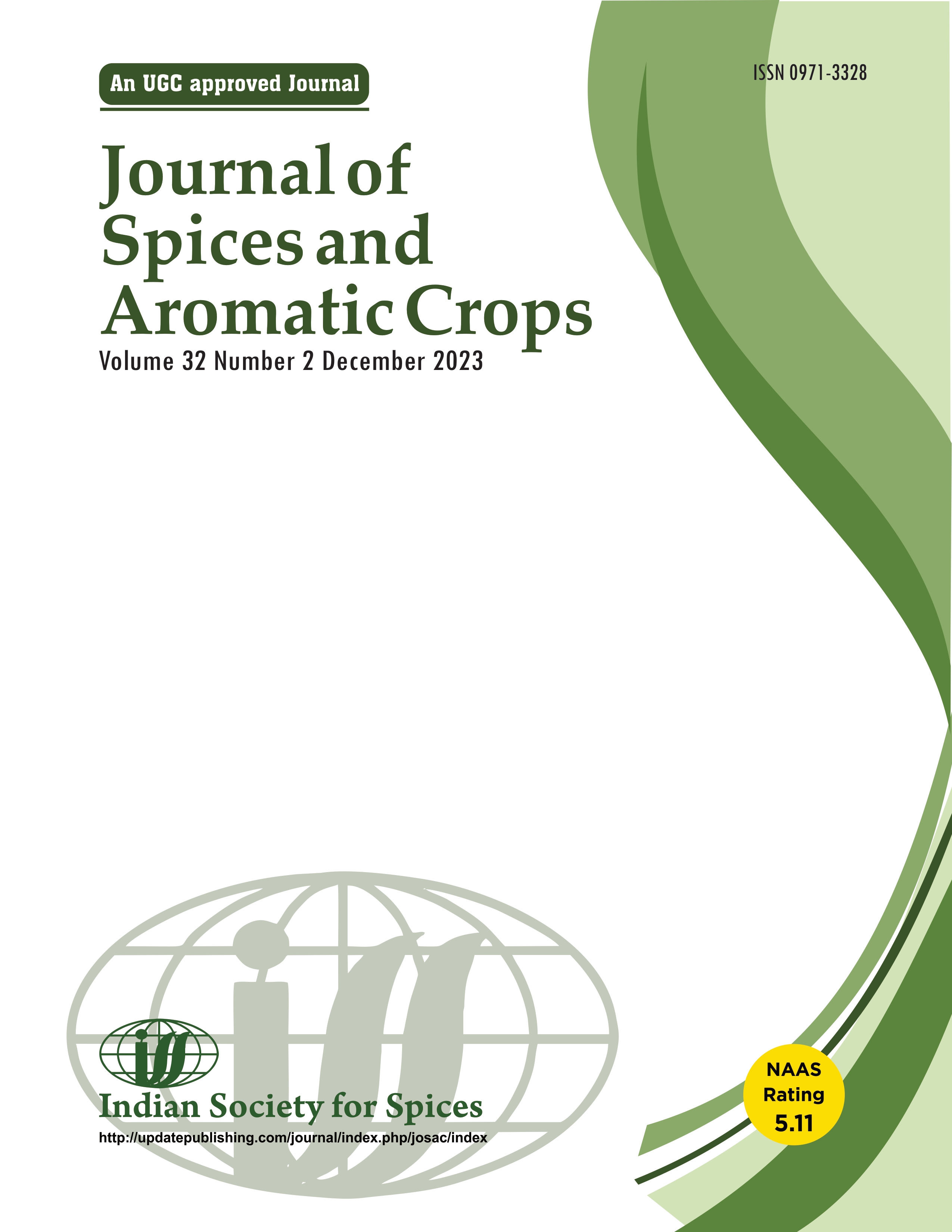The economic landscape of clove production in India: challenges and opportunities
Challenges and opportunities for clove production in India
DOI:
https://doi.org/10.25081/josac.2023.v32.i2.8880Keywords:
Clove plantation, India, cost of cultivation, import, trade, self sufficiencyAbstract
Clove is a valuable spice commodity with high demand in India, yet domestic production has remained stagnant, leading to import dependency. This study analyzed the clove economy in India, focusing on production trends, trade patterns, cost of production, and returns from clove farming. The data from primary survey of 40 clove plantations from five clove growing regions of Kerala (Idukki, Kozhikode and Kollam districts) and Tamil Nadu (Kanyakumari and Tenkasi districts) were used to estimate the cost of production and profitability of clove farming. The cost of production was estimated to be Rs 581 per kilogram of dry clove. The study reveals that clove cultivation faces challenges such as low genetic variability, poor agronomic practices, inadequate soil fertility management, biotic stress factors, senile plantations, unorganized markets, and labour shortages during harvest. These challenges constrain domestic production and hinder profitability. Intervention opportunities include developing high-yielding, disease-resistant varieties, enhancing extension services and training, strengthening disease and pest control measures, encouraging replanting and rejuvenation of senile plantations, establishing organized markets and price stabilization mechanisms, and addressing labour shortages during harvest. Addressing these challenges and implementing suggested interventions can increase domestic clove production, reduce import dependency, and improve the profitability and sustainability of clove farming in India.
Downloads
References
Danthu P, Simanjuntak R, Fawbush F, Leong Pock TsyJ M, Razafimamonjison G, Abdillahi M M, Jahiel M Penot E 2020 The clove tree and its products (clove bud, clove oil, eugenol): prosperous today but what of tomorrow’s restrictions? Fruits-International Journal of Tropical and Subtropical Horticulture.75(5): 224–242.
Food and Agriculture Organization of The United Nations. FAOSTAT (2023) Statistical database. Available at https://www.fao.org/faostat/en/
Malhotra SK, Homey Cheriyan, Babulal Meena, Manojkumar K and Sruthi Sreekumar (Eds.). 2021 Spices Statistics at a Glance 2021, Directorate of Arecanut and Spices Development, Calicut, Kerala.
Ministry of Commerce and Industry, Government of India. (2023). Export Import Data Bank. Retrieved from https://tradestat.commerce.gov.in/on October 23, 2023.
Spices Board (2022) Spice Production Data- 2021. https://indianspices.com/
Spices Board (2023) Spice Catalogue-Clove. Available at https://indianspices.com/spice-catalog/clove.html
Published
How to Cite
Issue
Section
Copyright (c) 2023 Lijo Thomas, K Anees, V A Muhammed Nissar

This work is licensed under a Creative Commons Attribution-NonCommercial-NoDerivatives 4.0 International License.






 .
.